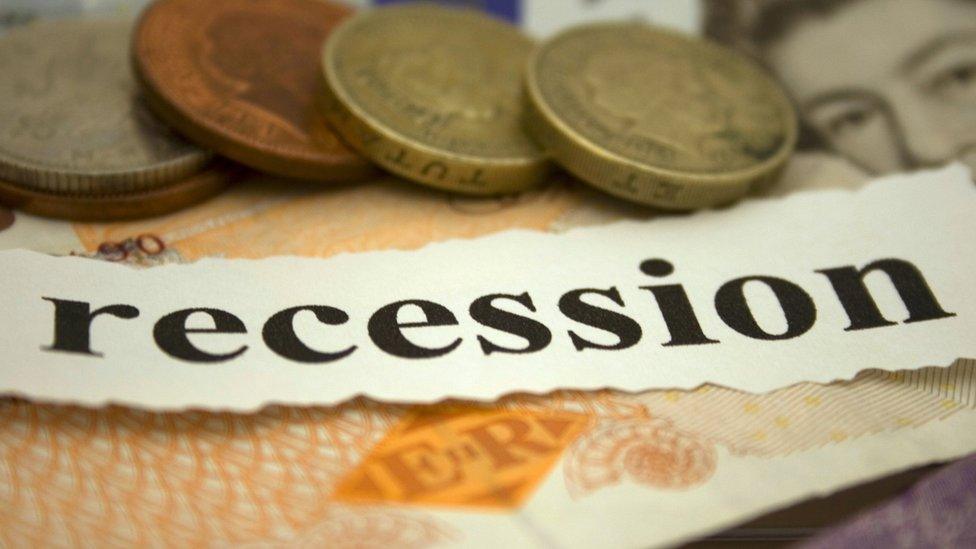Coronavirus: What is a recession?
- Published
- comments

The UK, along with much of the rest of the world, is thought to be heading into the worst recession for decades because of the coronavirus pandemic.
So, what exactly does that mean?
What is a recession?
Clothes, food, cars... we make and sell loads of things in the UK.
The more we sell, the more money the country makes. When that happens the economy grows.
Workers at a Jaguar Land Rover car factory in the UK
People in the country, on average, become slightly richer as the value of the goods and services we produce - our Gross Domestic Product (GDP) - increases.
But, sometimes the value of goods and services made or sold falls, which means our economy is shrinking.
If this happens for a period of six months in a row, then this is called recession.
If a recession carries on for a long time, or is particularly bad, it is known as a depression.
Why does it matter if there is a recession?
Gross domestic product is a measure of the value of all the goods and services produced in a country
For most people, economic growth is a good thing.
It usually means there are more jobs, companies are more successful and can pay employees more money.
People then have more money to spend, which in turn benefits businesses.
A growing economy also means the government receives more money in taxes. So it can decide to cut taxes for individuals, or spend more on benefits, public services and government workers' wages.
When the economy shrinks, all these things go into reverse.
How could a recession affect people?
Hard Times - a Newsround Special
Some people may lose their jobs, or find it harder to get promotions, or a pay rise.
Graduates and school leavers could find it harder to get a first job.
However, the impact of a recession is typically not felt equally across society, and inequality can increase.
The last recession in the UK was in 2008 and lasted for five financial quarters, which is a period of 15 months.
It led to 10 years of cuts by successive governments on public services, except health, education and international aid.
When will the recession end?
Industries such as air travel could take a long time to recover from the pandemic
The International Monetary Fund predicts the recession will be over next year and the world economy will start bouncing back, but no-one knows for sure.
If all the businesses which shut during the pandemic reopen quickly, the consequences will be less severe.
However, there are fears over future spread of the coronavirus, and people may not want to travel or go out.
Some experts think it could be a few years before the British economy, and the British people, have totally recovered.
- Published12 August 2020
- Published27 August 2020
- Published27 June 2020
